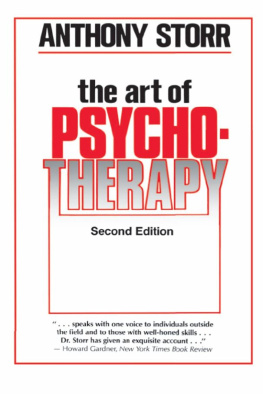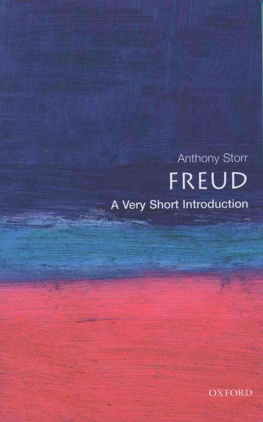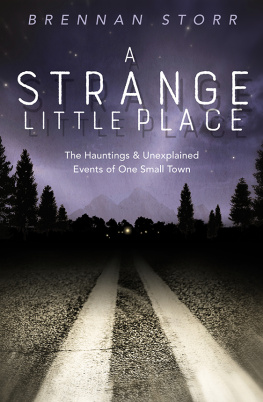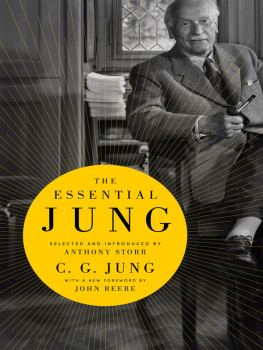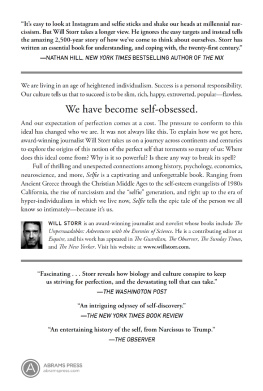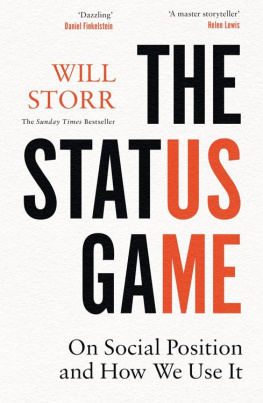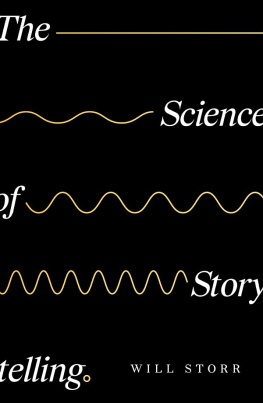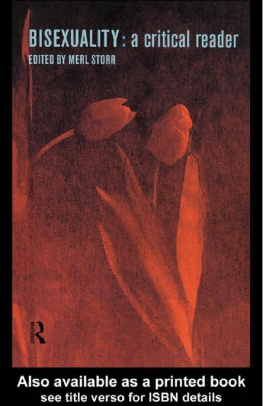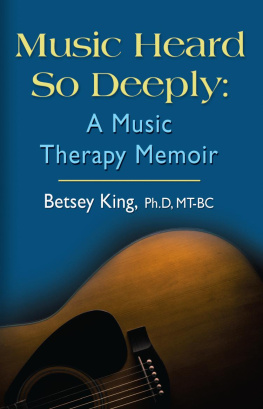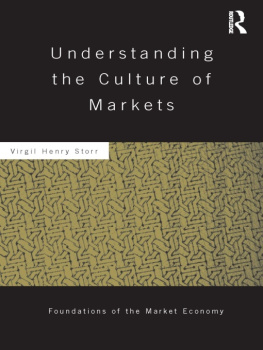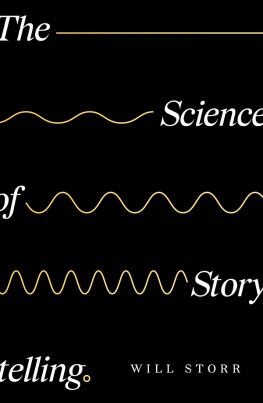More praise for Anthony Stores Music and the Mind
A rich feast... A thoughtful contribution to our understanding of musics emotional power.
Ellen Dissanayake
Author of Homo Aestheticus
Brings not only a deep psychological understanding to the creation and experience of musical performance, but an eloquent and wonderful wisdom as well.
Kay Redfield Jamison, Ph.D.
Anyone who feels like reflecting about the origins, the impact and the significance of music will find Dr. Storrs book helpful and stimulating.
Alfred Brendel
Outstanding... Original... Fascinating.
Albert J. Solnit, M.D.
Sterling Professor Emeritus Yale University
By the same author
THE INTEGRITY OF THE PERSONALITY
HUMAN DESTRUCTIVENESS
THE DYNAMICS OF CREATION
JUNG
THE ART OF PSYCHOTHERAPY
THE ESSENTIAL JUNG (editor)
SOLITUDE
FREUD
CHURCHILLS BLACK DOG
Thank you for downloading this Free Press eBook.
Join our mailing list and get updates on new releases, deals, bonus content and other great books from Free Press and Simon & Schuster.
C LICK H ERE T O S IGN U P
or visit us online to sign up at
eBookNews.SimonandSchuster.com
We hope you enjoyed reading this Free Press eBook.
Join our mailing list and get updates on new releases, deals, bonus content and other great books from Free Press and Simon & Schuster.
C LICK H ERE T O S IGN U P
or visit us online to sign up at
eBookNews.SimonandSchuster.com

Free Press
An imprint of Simon & Schuster, Inc.
1230 Avenue of the Americas
New York, NY 10020
www.SimonandSchuster.com
Copyright 1992 by Anthony Store
All rights reserved, including the right to reproduce this book or portions thereof in any form whatsoever. For information address Free Press Subsidiary Rights Department, 1230 Avenue of the Americas, New York, NY 10020
First Free Press ebook edition May 2015
FREE PRESS and colophon are trademarks of Simon & Schuster, Inc.
The Simon & Schuster Speakers Bureau can bring authors to your live event. For more information or to book an event contact the Simon & Schuster Speakers Bureau at 1-866-248-3049 or visit our website at www.simonspeakers.com.
Cover image 2015 Succession H. Matisse / Artists Rights Society (ARS), New York
ISBN 978-1-5011-2209-5 (ebook)
FOR
SOPHIA, POLLY, AND EMMA
WHO SHARE MY LOVE
OF MUSIC
Contents
Acknowledgements
I would like to thank all those with whom I have discussed this book for their help. My wife Catherine Peters has read more than one version of the typescript and, as always, has made a number of valuable comments. My publishers, Erwin Glikes of The Free Press and Stuart Proffitt of HarperCollins, have made many useful suggestions. I am particularly grateful to Patrick Gardiner for his expert criticism of the chapter on Schopenhauer; and to Lucy Warrack for her penetrating remarks on both Nietzsche and Schopenhauer. Professor Margaret Bent tactfully eliminated some of my grosser errors in the early part of the book. I gained much encouragement from the comments of Bruce Phillips, who was kind enough to read the whole typescript. Professor Brian Trowell and Jeremy Montagu allowed me to pick their brains on technical points, and Hugo Cole was equally helpful in the same connection. Dr Kay R. Jamisons psychological knowledge and insight have been invaluable. Ellen Dissanayake kindly allowed me to quote from her unpublished work, and so did Frances Berenson. Dr Robert Barton informed me of a paper on animal communication which proved illuminating. Stephen Englehard provided useful references and criticism. Rebecca Wilson proved herself an expert copy-editor. Old men forget, and there may be other people whom I have omitted to thank. To them I can only offer apologies.
Introduction
Since music is the only language with the contradictory attributes of being at once intelligible and untranslatable, the musical creator is a being comparable to the gods, and music itself the supreme mystery of the science of man.
CLAUDE LVI-STRAUSS
Today, more people listen to music than ever before in the history of the world. The audience has increased enormously since the Second World War. Recordings, radio, and even television, have made music available to a wider range of the population than anyone could have predicted fifty years ago. In spite of dire warnings that recordings might empty opera houses and concert halls, the audience for live performances has also multiplied.
This book reflects my personal preference in that it is primarily concerned with classical or Western art music, rather than with popular music. That these two varieties of music should have become so divergent is regrettable. The demand for accessible musical entertainment grew during the latter half of the nineteenth century in response to the increased wealth of the middle class. It was met by Offenbach, both Johann Strausses, Chabrier, Sullivan, and other gifted composers of light music which still enchants us today. The tradition was carried on into the twentieth century by composers of the stature of Gershwin, Jerome Kern, and Irving Berlin. It is only since the 1950s that the gap between classical and popular music has widened into a canyon which is nearly unbridgeable.
In spite of its widespread diffusion, music remains an enigma. Music for those who love it is so important that to be deprived of it would constitute a cruel and unusual punishment. Moreover, the perception of music as a central part of life is not confined to professionals or even to gifted amateurs. It is true that those who have studied the techniques of musical composition can more thoroughly appreciate the structure of a musical work than those who have not. It is also true that people who can play an instrument, or who can sing, can actively participate in music in ways which enrich their understanding of it. Playing in a string quartet, or even singing as one anonymous voice in a large choir, are both life-enhancing activities which those who take part in them find irreplaceable. But even listeners who cannot read musical notation and who have never attempted to learn an instrument may be so deeply affected that, for them, any day which passes without being seriously involved with music in one way or another is a day wasted.
In the context of contemporary Western culture, this is puzzling. Many people assume that the arts are luxuries rather than necessities, and that words or pictures are the only means by which influence can be exerted on the human mind. Those who do not appreciate music think that it has no significance other than providing ephemeral pleasure. They consider it a gloss-upon the surface of life; a harmless indulgence rather than a necessity. This, no doubt, is why our present politicians seldom accord music a prominent place in their plans for education. Today, when education is becoming increasingly utilitarian, directed toward obtaining gainful employment rather than toward enriching personal experience, music is likely to be treated as an extra in the school curriculum which only affluent parents can afford, and which need not be provided for pupils who are not obviously musical by nature. The idea that music is so powerful that it can actually affect both individuals and the state for good or ill has disappeared. In a culture dominated by the visual and the verbal, the significance of music is perplexing, and is therefore underestimated. Both musicians and lovers of music who are not professionally trained know that great music brings us more than sensuous pleasure, although sensuous pleasure is certainly part of musical experience. Yet what it brings is hard to define. This book is an exploratory search; an attempt to discover what it is about music that so profoundly affects us, and why it is such an important part of our culture.
Next page

